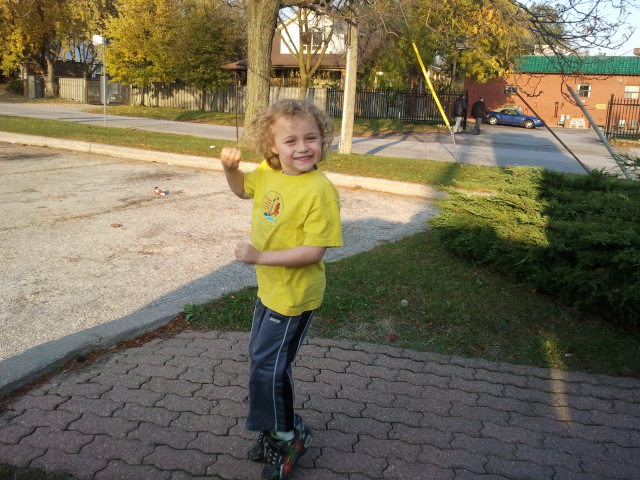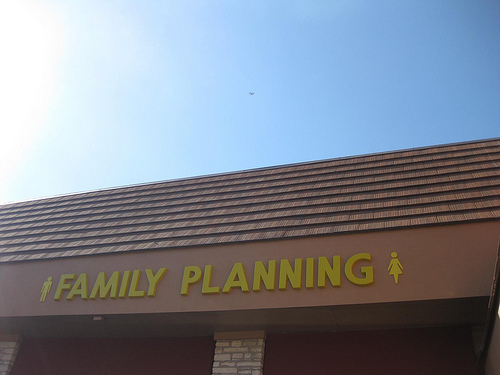- A week ahead of time, start showing your autistic child pictures of Santa Claus, and tell him that this is the dude whose knee he will be sitting on in order to get a picture taken. Try your best not to be distracted by the neurotypical five-year-old sibling who is bouncing around like the Energizer Bunny on steroids yelling, “Ho ho ho! Hairy Christmas!”
- At T minus two days, have a dress rehearsal at your house. This is imperative if you want the autie to wear a suit and tie and he has a tendency to melt down if you try to get him to wear shirts that don’t have horizontal stripes. You’ll probably want to have another dress rehearsal the day before.
- The evening before, bath your kids and wash their hair. Do the autie first. If you do the hyperactive neurotypical child first, the autie will head for the hills the second he sees the shampoo bottle. Instead, let the hyperactive neurotypical child dive for cover, hide the shampoo until it’s time to use it, and have a reward system handy. I use gummy bears. Whenever the autie opens his mouth to scream, I just shove another gummy bear in. I have become a master at washing a screaming, flailing autistic child’s hair in less than ninety seconds.
- Try not to think of the fact that sometimes, ninety seconds feels more like ninety years.
- When you wake up on the morning of the Santa visit, call the photographers who are doing the pictures. Tell them that you have a child with autism, and that if he’s made to wait in line he will have such a bad meltdown that the entire building will crumble and the place will end up looking like an archaeological dig. Most people will accommodate you if they know ahead of time that your child has special needs.
- Bring changes of clothes for the kids. As soon as the picture has been taken, the autie will want to put on a shirt with horizontal stripes, and if one isn’t available there will be trouble.
- Right before you leave your house, call the photographers again and find out if all their equipment is working. Technology comes with its share of problems, and if you have wait around while they try to get their printer to connect wirelessly to their laptop, your frustrated kids will band together with all of the other frustrated kids who are there, and they will start a Lord Of The Flies kind of mutiny. Believe me, you don’t want to caught with a crowd of angry children. They will overpower you. They will tie the grown-ups to poles and dance around them holding spears and chanting.
- Don’t let the absence of spears fool you. Kids can be frighteningly resourceful, especially when they are ticked off and have among their number an autistic child who knows how to think outside the box.
- When you are granted entrance to Santa’s domain, don’t mess around. Say hi to Santa, get the picture, and leave. Don’t wait for the autie to make eye contact with the camera lens. You will be waiting until the cows come home.
- When it’s all over and you are sobbing in the bathroom from the stress of it all, remember that this experience was positive. As you look at the picture, don’t think about all of the planning and angst leading up to it. Reflect on the fact that you have succeeded in doing a typical family activity. You have brought immense joy to the hyperactive neurotypical child, who shouldn’t be deprived of the opportunity to sit on Santa’s knee. And you have taken another step toward teaching your autistic child some vital coping skills that will help him for the rest of his life. Know this, and feel good about what a great parent you are.

Santa Pictures And The Autism Family: 10 Ways To Not Go Completely Insane

Autism Brothers
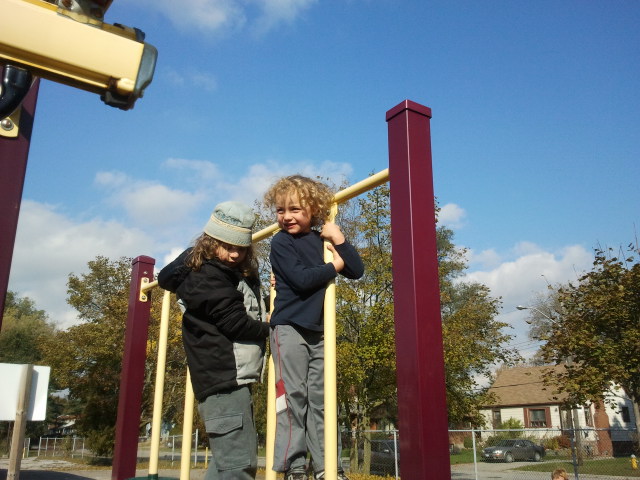 Sometimes, when you’re five years old and your big brother has autism, life just isn’t fair.
Sometimes, when you’re five years old and your big brother has autism, life just isn’t fair.
This weekend I spent a lot of time worrying about my son James. The worrying was prompted by reports from his before- and after-school program that he’s been acting up and is “always in trouble.” Initially, my husband and I put this down to James’ independent nature. He is a strong-willed child who is currently going through a phase of pressing other peoples’ buttons and seeing how far he can go.
But my gut instinct is telling me that I shouldn’t be giving James a hard time about his behaviour in the program – at least, not yet. Not until I have had a meeting with the program administrators to get a clearer picture. I have this nagging feeling in the back of my mind that there is something else going on here, something that might be making my baby unhappy.
About six weeks ago, we went through a decluttering blitz at my house. We got rid of toys and clothing that the boys had outgrown, and we threw out stuff of our own that has been lurking in boxes in our basement since Noah built the ark. One of the items we found was a calendar from a Chinese restaurant. It has the entire year on one long piece of fabricky-type stuff that rolls up like a mini-blind. James was fascinated with this thing and asked if he could have it. I said yes, and passed it over.
Last week while James was playing with the calendar, George kept grabbing at it and saying, “Mine!” James was getting upset because George was bugging him, and George was getting upset because he wasn’t getting the calendar. The situation escalated to the point of George having a meltdown and trying to headbutt James. And in order to stop George from going off the deep end, my husband took the calendar from James and gave it to George.
James was devastated. He sobbed his little heart out. It was bedtime anyway, so I carried him to his bed, lay down beside him, and held him tight. My own heart felt like it was breaking.
James didn’t see that my husband had been trying to stop a bad situation from going completely out of control. He just saw that we had taken away something that belonged to him, and given it to George.
There have been other times when George has gotten what James must perceive to be preferential treatment. We have to make allowances for George’s tolerances and levels of understanding. When James gets a timeout, he understands that he is being punished for something. This is completely lost on George: consequently, George never gets timeouts. We have different expectations of the two boys where it comes to sharing their toys with each other. Sometimes, family outings have to be cut short because George is not coping.
I cannot help asking myself: is it any wonder that James is trying too hard to assert himself in an environment other than home? Could it be that his perceived lack of control within his family is leading him to try and establish it elsewhere?
I try hard to make it up to James in other ways, but I wonder if I am doing enough. My mind keeps coming back to the idea that this poor kid probably doesn’t even have faith that his toys will remain his own. I worry about whether we are expecting James to have more coping ability than he is developmentally capable of.
It is clear to me and my husband that James loves his brother. He is always – with increasing success- trying to get George to play with him. When George is being reprimanded for something, James is standing up for him. And sometimes, when James wakes up from a bad dream in the middle of the night, he crawls into bed with his big brother and the two boys snuggle up to each other.
As much as they love each other, though, it seems to me that at times, the happiness of one has to be sacrificed for the needs of the other.
And that just isn’t fair.
(Photo credit to the author)

Emergence Of A Rainbow Generation
 On a hot day in February 1990, I stood still, waiting for history to happen. It was the middle of a South African summer; I had just started my final year at the University of Cape Town, and it seemed as if the entire student body – no, make that the entire population of the Western Cape – had turned out. I was going through a lot of difficulty in my life at that time, but wild horses couldn’t have kept me away from this.
On a hot day in February 1990, I stood still, waiting for history to happen. It was the middle of a South African summer; I had just started my final year at the University of Cape Town, and it seemed as if the entire student body – no, make that the entire population of the Western Cape – had turned out. I was going through a lot of difficulty in my life at that time, but wild horses couldn’t have kept me away from this.
Finally, it happened: the event everyone had been waiting for. A well-known and much-loved figure appeared and waved at the crowd, which was going nuts with excitement. Tears of emotion flowed all around me and within me as this great man stood before us. It was official. Nelson Mandela, the icon of freedom in South Africa, was a free man.
During my childhood years in South Africa, I was a little afraid of black people. This is hardly surprising when you consider the draconian laws that were in effect at the time. Black people and white people were completely segregated. They were required by law to live in different neighbourhoods, they could not attend the same schools or churches, and they could not use the same public facilities. In many cases, they could not even enter stores through the same doors. When I was a child, my exposure to black people was limited to the gardener and the cleaning lady.
My parents, and the parents of my peers, did their best. They themselves had been raised to distrust people different from themselves. Fortunately for me and my contemporaries, common sense and basic human dignity had prevailed, so the generation above me had gone against their own upbringings and taught us to treat everyone with respect, no matter what colour their skin was.
And yet, it has to be remembered that our parents were trying to raise non-discriminatory kids in a society that legally mandated racism. We couldn’t have playdates with black people. If you looked at the student body during school assemblies, you would have seen a sea of white faces. We never shared grocery store line-ups with black people; we didn’t even pass them on the street.
How could a generation of kids learn how to interact in a positive way with a group of people they were never exposed to? It is no wonder that despite the eventual dismantling of the Apartheid regime, race relations in South Africa remain troubled. People are still learning how to get along after generations of having been told that they were not allowed to.
My two kids are having a childhood that contrasts sharply with my own. They have never known an existence of discrimination. They interact freely with kids from all backgrounds, regardless of ethnic origin. To them, people are just people. A telling example of this happened almost two years ago, when my younger son’s Kindergarten teacher unexpectedly died and a new teacher was brought in. When I asked my son what the new teacher looked like, he said she was absolutely beautiful. She had long black hair, and a big smile, and big brown eyes. It is perhaps a damning indictment to my own upbringing that I was surprised, when I finally met the teacher, to see that she was black. My son had not once mentioned this in his lengthy description of her. He had not even noticed her skin colour.
My kids are growing up in a world that sadly still experiences some racism. But so far, they themselves have not shown any signs of discrimination. If that ever happens, it will be nipped in the bud immediately. My dream is for my kids to grow up respecting everyone, no matter who they are or where they come from.
As Scout says in Harper Lee’s To Kill A Mockingbird, “There’s only one kind of folks. Folks.”

Three Generations Of Runners
One of the best races I ever ran was my first-ever 10K event starting at Mel Lastman Square, on the northern fringes of Toronto. This was back in 2001, before my long hiatus from the running scene. The run was called the Ismaeli Run For Charity, and although it was a small event with only 300 or so runners, it was festive and well-organized. This particular race stands out in my memory not because of the run itself (I actually remember it being a very hard run: race day coincided with the start of an intense heatwave in Toronto), but because my dad was there. It is the only time my dad got to send me off at a start line and cheer me on as I crossed the finish.
Dad played a pivotal role in my running. Having been a top-class marathoner in his youth, he became my mentor when I first took up running, way back in 1996. He gave me advice on everything from race-day strategy to the importance of having the right socks. He showed me how to tackle hills and demonstrated how incorrectly laced shoes can make your feet hurt. He advised me not to rely too much on technology in my training, pointing that in his youth, the only tool a runner really had was his own body. He told countless stories of the races he had run and the people he had encountered on the way.
He was immensely proud when I started running. Passing on his stories and his wisdom to me meant a lot to him, and the day he stood waiting for me at the finish line was absolutely momentous.
Now, I get to pass on the legacy as a third generation is added to the line of runners. My son James, who is all of five years old, has been taking an interest in my running for the last year or so. He wishes me well as I set out for my long runs, and stretches with me when I get back. He fussily makes sure I have enough water to drink, and for some time, he has been talking about going running with me “one day”.
Recently, when I registered for the upcoming 10K event at the Whitby Waterfront Races, James asked if he could be in the race too. Deciding that he was ready, I registered him for the 1K kiddies event. And this weekend, his dream of going running with me came true as I took him out for his first real run.
I did not have any real expectation for the run. I just wanted to see how James would do over a full kilometre, and more importantly, I wanted to get a sense of whether he would really enjoy it. I made it clear to him that he could stop anytime he wanted, and that he didn’t have to do it in the first place unless he was sure. This earned me an eye-roll so intense that I thought his eyes would fall out of his head, and he said impatiently, “Mom-meeeee! Can we please go now?”
I needn’t have worried. Although he briefly slowed to a walk three or four times, he ran the kilometre I had measured out with no trouble. I marvelled at his natural form as his body just fell into the posture and rhythm that articles in running magazines are always saying we should adopt.
I also needn’t have worried about whether he would enjoy it. He loved it. He wants to go again, and as the day of his first race approaches, he is getting more and more excited.
I realize that anything could happen: the kid is only five and he could lose interest tomorrow. But by all appearances, he is really interested in running being a part of his life, and what I do as a parent could either cement that or dissipate it. I feel that I am witnessing the emergence of a new runner: a runner who I get the privilege of nurturing and mentoring, just as my dad did for me.
I feel that in guiding my son, I am a part of something big, something special, and something that I consider to be a great honour.
I only wish my dad could see this. Who knows? Maybe he can.
Welcome, James to the world of running. I hope you choose to stay here, and if you do, I hope we get to run many miles together.
(Photo credit to the author)

Embracing Autism
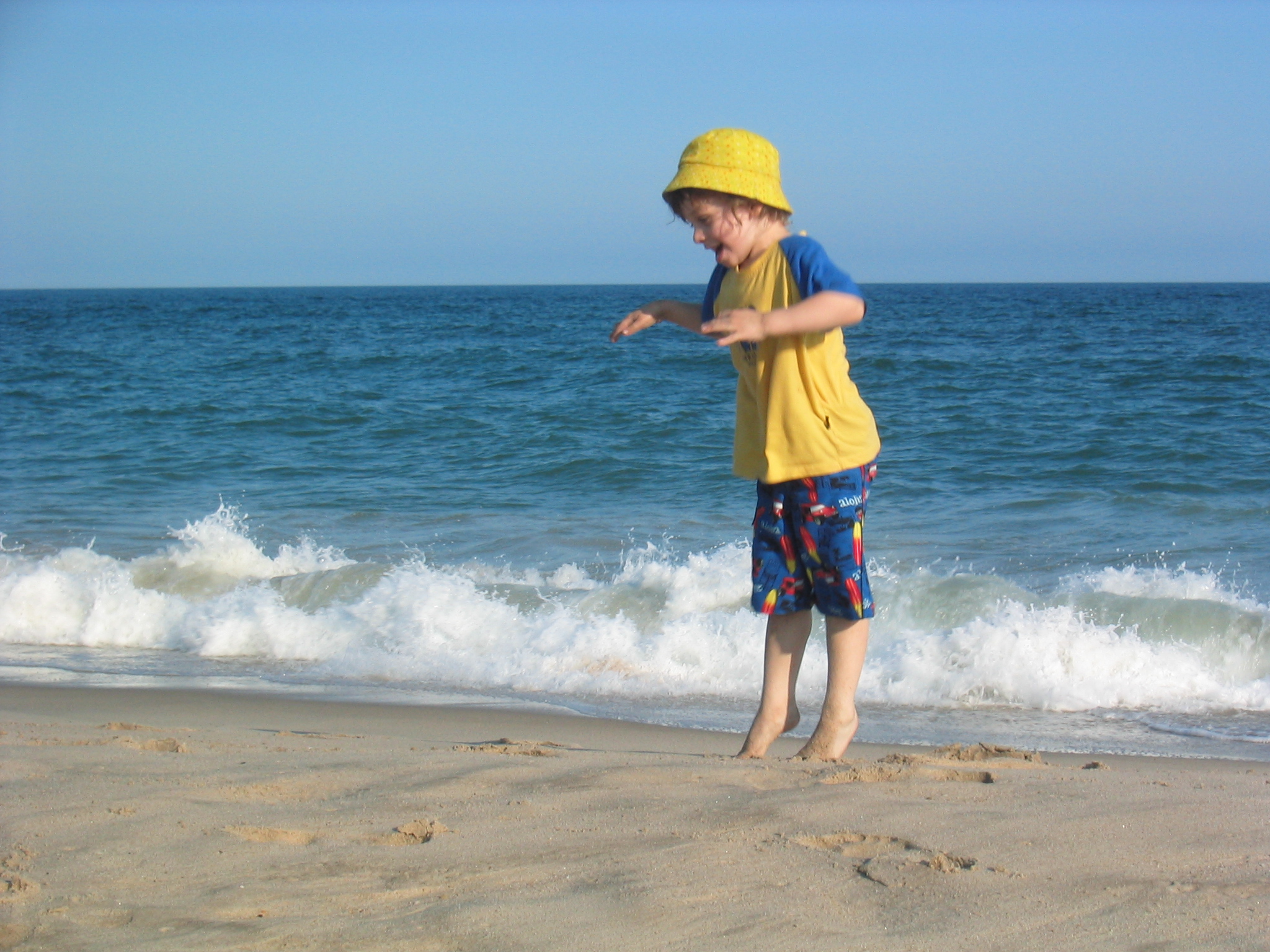 If there was a cure for autism, would you use it for your child?
If there was a cure for autism, would you use it for your child?
This question was posed to me recently by a non-autism parent, and it really made me think. Before I was an autism mom – indeed, before I was any kind of mom – my immediate instinct would have been to say “Yes! Absolutely! What kind of parent would choose for their child to have a disability?”
Now that I can speak with the voice of experience, my answer to that question is very different. There are some aspects of autism that I would get rid of in a heartbeat. When my son, now eight, has his meltdowns, the expression of anguish in his eyes breaks my heart. If I could wave a magic wand, I would give him the ability to communicate the pain that he feels during those outbursts. I would make the changes of seasons easier for him, I would make Christmas less overwhelming, and I would give him the skills to play with his little brother.
On the other hand, there are things that I would not change in a million years. Someone once told me that my son is very smart “in spite of his autism.” I gently corrected this person by telling her that my son is very smart because of his autism. His mind works in a very unique way. Thanks to his out-of-the-box thinking, this kid can problem-solve rings around the rest of us. He can do multiplication in his head, and this is something that no-one has ever taught him. He just figured it out himself. He sees patterns that are lost on everyone around him: once, when he was putting coloured pegs into a board, I literally had to squint at the board from a number of angles before the pattern he was creating suddenly jumped out at me. If he was given a cure for autism, that incredible way of thinking would disappear.
In the eyes of society, my son has a disability. The education system regards him as having special needs, autism is classified by the medical community as a disability, and the government has granted us a disability tax credit for him. And rightly so: my son definitely needs special accommodations. There is no way he can function in a neurotypical world without assistance. Although I believe he will be capable of great things as an adult, I see the possibility of him being unable to live completely independently. But as much as there are things that he cannot do as well as other people, there are things that he does better. He may frequently take the scenic route from a problem to the solution, but his route can cover a lot more ground, solve problems that no-one else even knew existed, and frankly, the scenic route often has a better view than the highway.
When this amazing boy with his sweet, sweet disposition curls up on the couch with me, wraps his little arms around me, and allows me the privilege of being in his world with him, I feel a love for him that is too big to put into words.
Would I ever want my son to be “cured” of autism? No. Because the challenges just make us stronger, and his autism is a part of the beautiful person he is.

Autism Meltdowns: Six Strategies For Helping Siblings
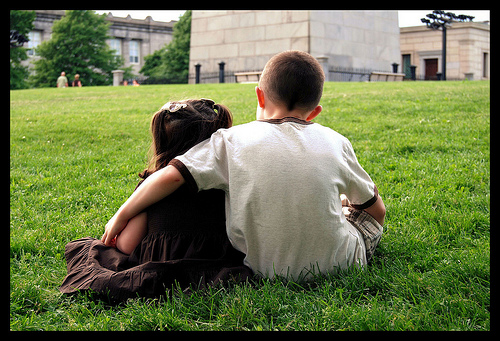 It is a scenario that parents of children with autism are confronted with countless times: the child melts down for no apparent reason while his or her brother or sister stands by helplessly, not understanding what is going on. Autism meltdowns can be particularly bewildering for younger siblings who may not fully understand what autism is or why the meltdown is happening.
It is a scenario that parents of children with autism are confronted with countless times: the child melts down for no apparent reason while his or her brother or sister stands by helplessly, not understanding what is going on. Autism meltdowns can be particularly bewildering for younger siblings who may not fully understand what autism is or why the meltdown is happening.
The strategies that I am describing today are based purely on my own experiences. I did not read them on the Internet or get them from any parenting books. I learned these in the best way possible: from the School of Hard Knocks.
1. When a child with autism starts having a meltdown, the primary concern should be for everyone’s physical safety. The child is going to lash out wildly, hitting or kicking whatever or whoever he comes into contact with. He may run around with no real direction and bang his head on objects or people. Children going through an autism meltdown seem to have superhuman strength, and there could be a real threat to siblings who are standing too close. Therefore it is imperative to ensure the safety of the siblings as early as possible in the incident. This can be accomplished by taking them to a different room and making sure they have enough toys or books to see them through for what could be a couple of hours.
2. Siblings should never be punished while a meltdown is happening. This may seem intuitive, but it can be really easy to fall into the trap of yelling at siblings who happen to get too close while the parent is trying to deal with the autistic child. We are, after all, only human. If a child wanders up during a critical moment, we can have a knee-jerk reaction to yell, “Get away!” or “Go to your room!” Doing this may make the sibling feel that he is somehow responsible, and that is not a burden any child should carry. A better strategy would be to ask the child to leave the room, promising that you will go to them as soon as their brother or sister is OK.
3. Recognize that the siblings are not only bewildered and confused by what is happening, they are also in all probability deeply concerned about their brother or sister. In the scenario described above, where the sibling is getting too close, it may be helpful to verbally acknowledge this. Tell the sibling that you know how scary this is for them, that you know they are worried. This simple strategy will validate their feelings and give them permission to feel the way they feel, and it can go a long way to helping them weather the storm.
4. When the meltdown is over, take the time to explain to the siblings what just happened. Talk to them about autism and how children affected by it sometimes have difficulty processing emotions or sensory overload. It is fairly common for siblings to start apologizing in the aftermath, worrying that something they did caused the explosion. They have to be reassured that this was not their fault.
5. More often than not, the sibling is going to need some post-meltdown reassurance that their brother or sister is OK. Bear in mind that they have just been witnesses to an extremely intense melting pot of emotion. They may want to see or talk to their brother or sister. Exercise caution, because meltdowns that have passed can flare up again, but is important for you allow (but not force) interaction between your children.
6. Reserve some time to spend exclusively with your autistic child’s sibling. It can be tough, being brother or sister to a child with autism. There are many times when the needs of the typically developing children are sidelined because of the special needs of their sibling. Meltdowns definitely fall into this category. Because of the nature of these explosions, parents have no choice but to mostly ignore one child so they can focus on the safety of another. When the meltdown is over – be it immediately or later in the day – that time should be given back to the sibling without autism. Read to your child, watch his favourite DVD with him, let him choose a game to play, or simply spend time snuggling with him.
Managing meltdowns involves so much more than taking care of the child with autism. We have to consider our typically developing children as well. Even though they don’t have autism, they are still children, and they look to us to protect and reassure them. Using these strategies consistently can help them develop their coping skills and enhance their relationship with their autistic brother or sister.
Do you have any tips to add to my list? Please leave them in the comments!
(Photo credit: http://www.flickr.com/photos/nicolesfromtheheart/4290444513. This picture has a creative commons attribution license.)

Autism Meltdown: Surviving The Storm
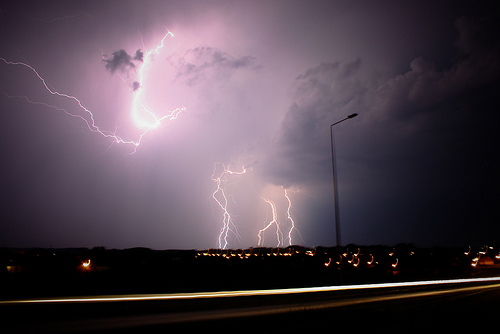 It all started when I turned on the light in the kitchen. My almost-eight-year-old son George sidled up to me and, as usual, said, “Turn off the light soon.”
It all started when I turned on the light in the kitchen. My almost-eight-year-old son George sidled up to me and, as usual, said, “Turn off the light soon.”
George hates the overhead light in the kitchen, and whenever it is turned on, he glues himself to my side and repeatedly tells me to turn it off, like a stuck record. I am so used to this that I barely notice it anymore. I just carry on with whatever I need to do, which last night included unpacking and reloading the dishwasher.
Uh oh. The dishwasher. This is another source of extreme discomfort for George. He gets very anxious when it is open, and like a record stuck on a different track, he tells me over and over again to “put it back soon”.
This – the combination of the light and the dishwasher – was a precursor to the explosion that would happen later in the evening.
I was probably not helping, at least, not at that point. I was in an agitated state of mind, having just come home from a stressful workday. I was multitasking too much, juggling about six tasks simultaneously, and getting stressed because neither of the kids would eat their dinner. I was frazzled and fraught. There is no other way to put it.
The explosion gradually built up throughout the evening, and finally erupted when George turned on the kitchen tap and found the water hotter than he expected. He screamed in outrage and started running around in a panic. I caught him, and using an expertise borne of experience, I used my body to restrain him from thrashing around and hurting himself.
I determined that he was not burned or injured, and sat there wrapped around him while he screamed. And screamed and screamed.
It has been a while since George had a meltdown this bad, but I knew that there was not a thing I could do to diffuse it. This was going to last for as long as it lasted, and we were just going to have to ride it out. Fortunately, my husband was home, so I had someone to tag-team with. One of us would stay with George, while the other would comfort our younger son James, for whom these meltdowns can be mysterious and frightening. Every thirty minutes or so, we would switch kids. Anything else that either of us had planned for the evening was abandoned.
After two hours or so, George finally started winding down. My husband and I cautiously allowed ourselves to breathe. He went back to the work he had been doing on his computer, and I went into the kitchen and made a cup of tea. I got the kids into their pajamas and gave them their bedtime milk. Because they were both still unsettled, I allowed them to chill out on the couch for a while before going to bed.
The period of relative calm turned out to be the eye of the storm.
The dishwasher had been running in the background without anyone paying attention to it. George, with his super-sensitive ears, heard the quiet click that heralds the end of the dishwasher’s cycle, and just like that, he was off again. For another hour, this poor child was experiencing an emotional storm that I felt ill-equipped to help him weather.
The worst part of all this was not the screaming. It was not the panicked running around and frantic scrabbling with the dishwasher. The worst thing by far was the look in George’s eyes. He kept looking directly at me, trying desperately to communicate – something. If the eyes are indeed the window to the soul, then my son’s soul was frustrated, unspeakably sad, desperate – almost tortured. It broke my heart to see him that way, to see him in such obvious pain and to be unable to help him.
Much later, when everything was finally quiet and when the entire household (sans me) was asleep, the question of why kept running through my mind. What happened to trigger the worst meltdown we’ve seen in about a year? Could the light and the dishwasher have suddenly morphed from a source of anxiety to a source of full-on panic? Was the hot water just too much for him to handle? If I had not been stressed and agitated, would the situation have escalated to such an extreme degree? In an interesting theory offered by my mother – one that resonates with me – could yesterday’s earthquake have unsettled George and made him more susceptible to stress?
As with most things autism-related, there are no definitive answers. Every question just spawns more questions. All I can really do is go with my instincts and strive to be the best mom I can be.
(Photo credit: http://www.flickr.com/photos/powazny/3782692376/. This picture has a creative commons attribution license.)

Fleeting Moments Of Babyhood
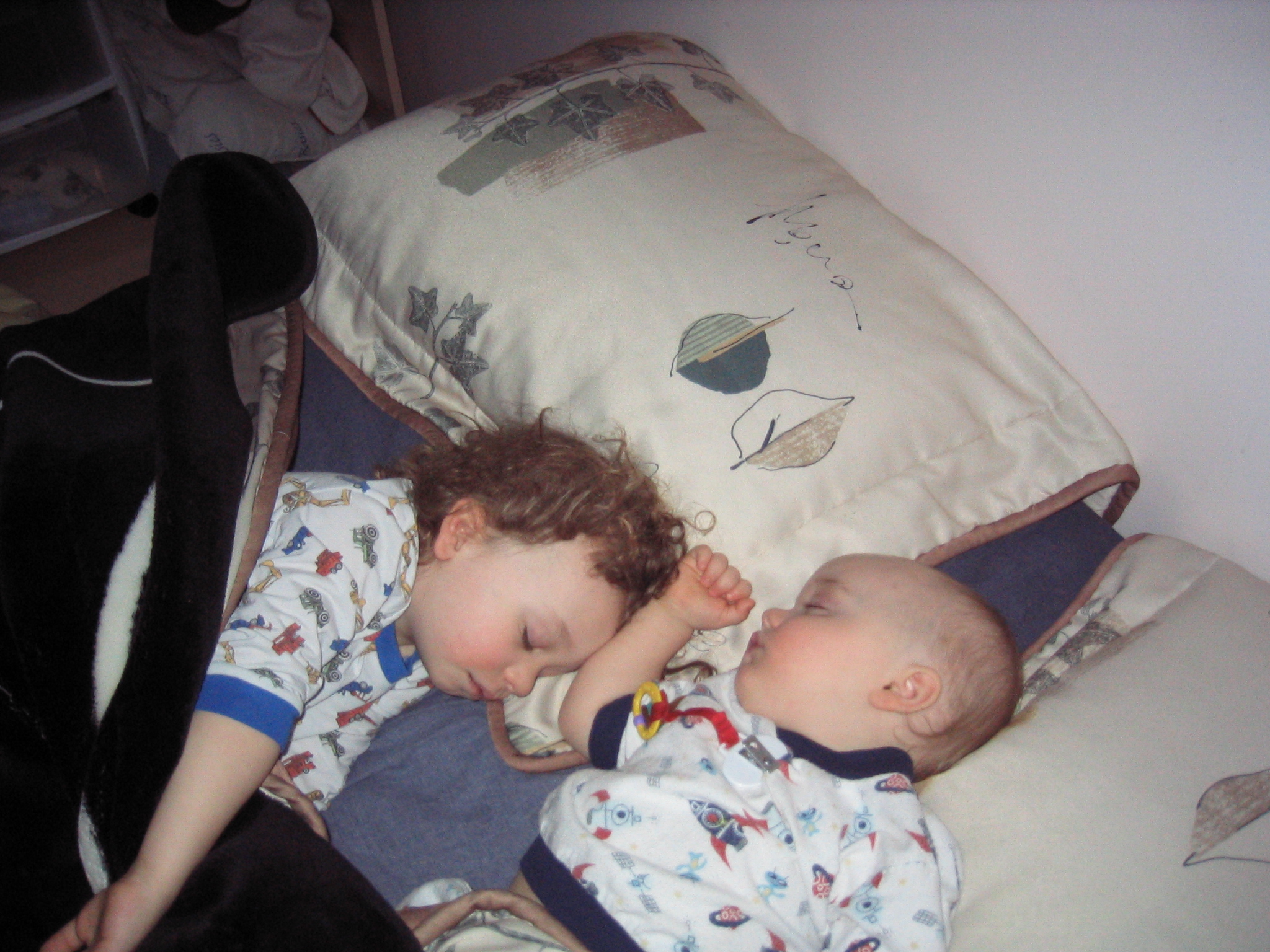 On my way home from work a couple of days ago, I saw a young woman nursing her baby on the subway. The baby’s father had his arm placed protectively over the mother’s shoulders, and his body was angled in a way that provided mom and baby with some privacy. Both parents were looking at their baby with absolute love and tenderness.
On my way home from work a couple of days ago, I saw a young woman nursing her baby on the subway. The baby’s father had his arm placed protectively over the mother’s shoulders, and his body was angled in a way that provided mom and baby with some privacy. Both parents were looking at their baby with absolute love and tenderness.
As I sat gazing at this perfect picture, the mom looked up and met my eye. She gave me a beatific smile, and then turned her attention back to her baby.
I went back to reading my book. I felt that I had been given the privilege of witnessing a beautiful family moment, but I did not want to outstay my welcome. I sensed that continuing to watch them would have been intrusive.
I was not able to concentrate on my book, though. Instead, I found myself daydreaming about my first few months of motherhood, almost eight years ago.
When my older son was a baby, I felt that same sense of peace and contentment that I saw in that family on the subway. There were baby blues, to be sure, and I went through the same sleep deprivation common to most new parents. But the baby blues passed, and behind the haze of exhaustion I was happy.
Thanks to Canadian maternity leave provisions, I got to enjoy a full year at home with my baby. Back then, my husband and I each had our own car, so while my husband was off at work, I would load the baby into my car and we’d go out.
Sometimes we would go to the park, and I’d spread out a blanket for us. I would nurse the baby if he was hungry, and then I would drink my coffee and talk to him about the clouds and the trees and the birds.
Other times we would go to the bookstore to browse. I would pick out a book from the bargain shelves and pay for it, and then we would go to the coffee shop. I would take the baby out of his stroller, and he would doze off in my embrace while I lazily read my book.
We went on excursions to the mall, to stores, and to mom-and-baby groups. From time to time, I would strap my son into the baby-jogger and we would go running together. We would walk to the coffee shop down the road, I would buy myself lunch and nurse the baby, and then we would take a long, circuitous route back home.
I loved those early days of parenting. They were exhausting yet idyllic. I knew absolutely nothing about being a mother, but I was happy to find my way with this beautiful boy in my arms.
When my younger son came along, everything was so different. Financial pressure had forced us to give up one of the cars, so while my husband was working, I was stuck at home with both kids. I felt a sense of entrapment that I only started to get some relief from when a friend very generously sent me a double stroller that she no longer needed. Even though it was the middle of winter, I would put the boys in the stroller and go trudging through the snow, so desperate was I to get out.
At around this time, we were starting to get the sense that there was something wrong with my older son, and I felt crushed under the worry that came with that. And to top it all off, I struggled with post-partum depression that was undiagnosed for almost a year.
When my firstborn was a baby I felt bliss. With my secondborn, I felt desperation. And to this day, I feel intense guilt over the fact that I did not do all of the babyhood things with my younger son that I had so enjoyed with my older son. I am doing my best to provide them with childhood years filled with joy, and judging by their smiles, laughter and hugs, I am doing OK in that department. But I cannot help feeling as if I missed out on a part of my younger child’s life that can never be recaptured.
Going back to the family on the subway that started off this whole train of thought, I wish them all of the joy in the world. I hope they savour that period of babyhood that is all too fleeting.

Letting Go Of The Old
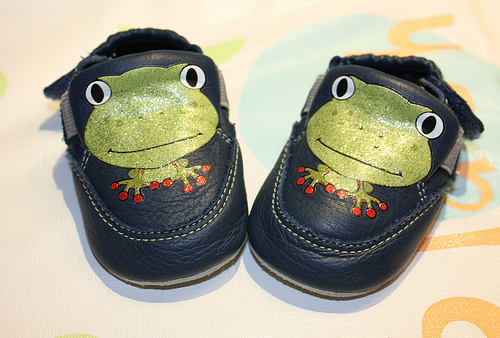 Yesterday afternoon, I found my living room floor. It had been missing for several years, buried beneath layers of toys that the kids have, over the years, played with and outgrown.
Yesterday afternoon, I found my living room floor. It had been missing for several years, buried beneath layers of toys that the kids have, over the years, played with and outgrown.
On several occasions, I have made efforts to organize the toys, painstakingly separating them into categories and storing like with like. But these toy organization systems that I have spent hours creating have lasted, on average, for about an hour. My older son sometimes copes with his autism meltdowns by picking up boxes of toys and dumping out the contents. Even as I wistfully watch my hours of work come to naught, I recognize that I would rather see my son throw toys around than bang his head against the wall hard enough to put holes in the drywall.
Quite apart from the side effects of autism, kids under the age of six don’t really get that the cars should go with the other cars, or that the Legos should be in the same container, or that the gazillion Mr. Potato Head parts are meant to stay together.
This weekend, me and my husband – ably assisted by our five-year-old son, took another crack at organizing the toys. But there was a difference in the way we did it this time.
A big difference.
This time, we actually got rid of stuff.
I thought getting rid of toys would be a nightmare, but once we had the buy-in of our younger son, it was actually quite easy. It was never going to be a problem where our firstborn was concerned. As long as he has his Lego, his gazillion Mr. Potato Heads, his measuring tapes, his alphabetic fridge magnets, and his math workbooks, he’s happy.
After a day of sorting, storing, and being bossed around by our five-year-old, we had reduced the volume of toys by a staggering amount. All of a sudden, we had enough toy boxes to contain all of the toys that we kept, without them spilling over onto the carpet. We rediscovered the concept of walking from one end of the living room to the other without getting Lego-shaped dents in the soles of our feet. It was an incredibly liberating experience.
There’s just one thing…
These are the toys that my kids played with when they were babies. The little teddy bears. The Winnie the Pooh ride-on toy. The blocks, the nesting cups, the First Words books. Getting rid of these remnants of my kids’ babyhood was like saying goodbye to a phase of my life, and acknowledging that my babies are no longer babies, that they are little boys.
As sentimental as I felt about the toys, what really made my breath catch in my throat was sorting through the little shoes that my kids wore as babies. It was the shoes that served as a physical reminder of how tiny they once were. As I held the shoes in my hands, the memories washed over me.
My older son’s very first pair of baby slippers, given to him by my Dad when he was just a few days old (no way am I getting rid of those).
Feeling my boy’s fingers grasp my hand with absolute trust as he tentatively walked in shoes for the first time.
My younger son’s face, alive with excitement, as he wore the shoes that were a miniature version of the ones his Dad wore.
My two boys laughing together as they splashed in rain puddles, wearing their new galoshes.
Their joyful oblivion as they tramped snow into the house in winter, leaving tiny wet footprints all over the floor.
The memories fade out and I reluctantly come back to reality, sitting there on the floor holding these tiny shoes in my hands. All but a couple of extra-special pairs must go. It is time to allow to the old to make way for the new, as my boys enter new and exciting phases of their lives.
Just because it has to be done though, that doesn’t make it easy.
It represents a letting go, and that is a bittersweet pill for any Mom to swallow.
(Photo credit: http://www.flickr.com/photos/ophilos/2564467134/ This photo has a creative commons attribution license.)




